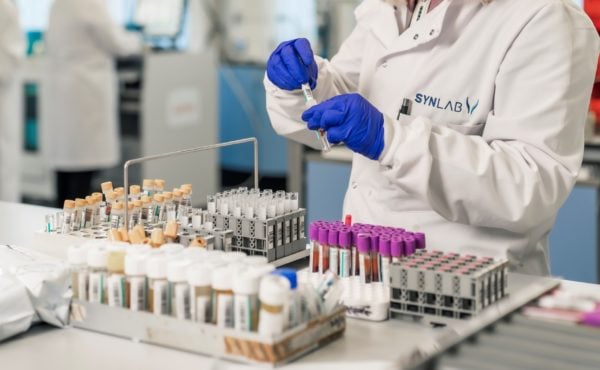Published: 22nd September 2020 - All information correct at time of publication.
Did you know that ‘The Control of Substances Hazardous to Health Regulations 2002 (COSHH)’ requires employers to prevent employees being exposed to benzene, or where this cannot reasonably be done, adequately control their exposure?
That as an employer, it’s your responsibility to find out how much benzene employees are exposed to and arrange any health checks that are needed?
In this blog we take a closer look at benzene, where it can be found, what effects it can have on employees and routine testing options to keep your team safe.
What is Benzene?
Benzene is a colourless, sweet-smelling chemical that is formed from both natural processes and human activities. Natural sources of benzene include volcanoes and forest fires, it can also be derived from natural gas, crude oil, or coal.
Industry uses benzene to make chemicals that can be used to produce plastics, resins, and nylon and synthetic fibres. It is also used to make some types of lubricants, rubbers, dyes, detergents, drugs, and pesticides.
What are the effects of benzene exposure?
Most benzene exposure comes from the air. Low levels of benzene can be found every day in outdoor air, produced by tobacco smoke, petrol stations, motor vehicle exhausts and industrial emissions.
Those working in industries that make or use benzene – particularly indoors – are at risk of being exposed to the highest levels of benzene. This includes glue, paint, detergent and petrochemical manufacturers along with refining plants.
The seriousness of benzene poisoning depends on the amount, route and length of time of exposure, as well as the age of the person exposed to the chemical and any pre-existing medical condition they may have.
High level exposure to benzene can result in the following symptoms in a matter of hours:
- Drowsiness
- Dizziness
- Rapid or irregular heartbeat
- Headaches
- Tremors
- Confusion
- Unconsciousness
Long term, persistent exposure to benzene has its biggest impact on blood. Harmful effects on bone marrow can cause a decrease in red blood cells, leading to anaemia. It can also cause excessive bleeding and affect the immune system, increasing the chance for infection. Some studies have determined that benzene can cause cancer in humans.
Testing for Benzene
At SYNLAB Laboratory Services we help our customers protect those members of staff, with the potential of being exposed to benzene, by routinely testing for S-phenyl-mercapturic acid (SPMA) via a urine sample. We can also test employees after an incident to confirm if they have been exposed to a dangerous level following high level acute exposure.
SPMA is a very specific urinary biomarker of benzene. Its half-life is in a range of 9–13 h, and its accumulation is not probable, therefore, it is a biomarker of recent exposure.
Regular, routine testing at the end of an 8 hour shift, will identify whether employees have been exposed to benzene and provide an indication of the level of exposure. Early identification of high levels of benzene will support early diagnosis and allow employers and employees to monitor and manage their health.
In addition to urine testing for the identification of recent exposure, our in-house pathology laboratory is also able to provide blood testing. Counts of all components of the blood are carried out to enable doctors to determine exposure to benzene and the degree of any damage done.
For more information on benzene, SPMA and full blood count testing, please contact our customer services team via an email to [email protected] or call us on 01873 856688.




